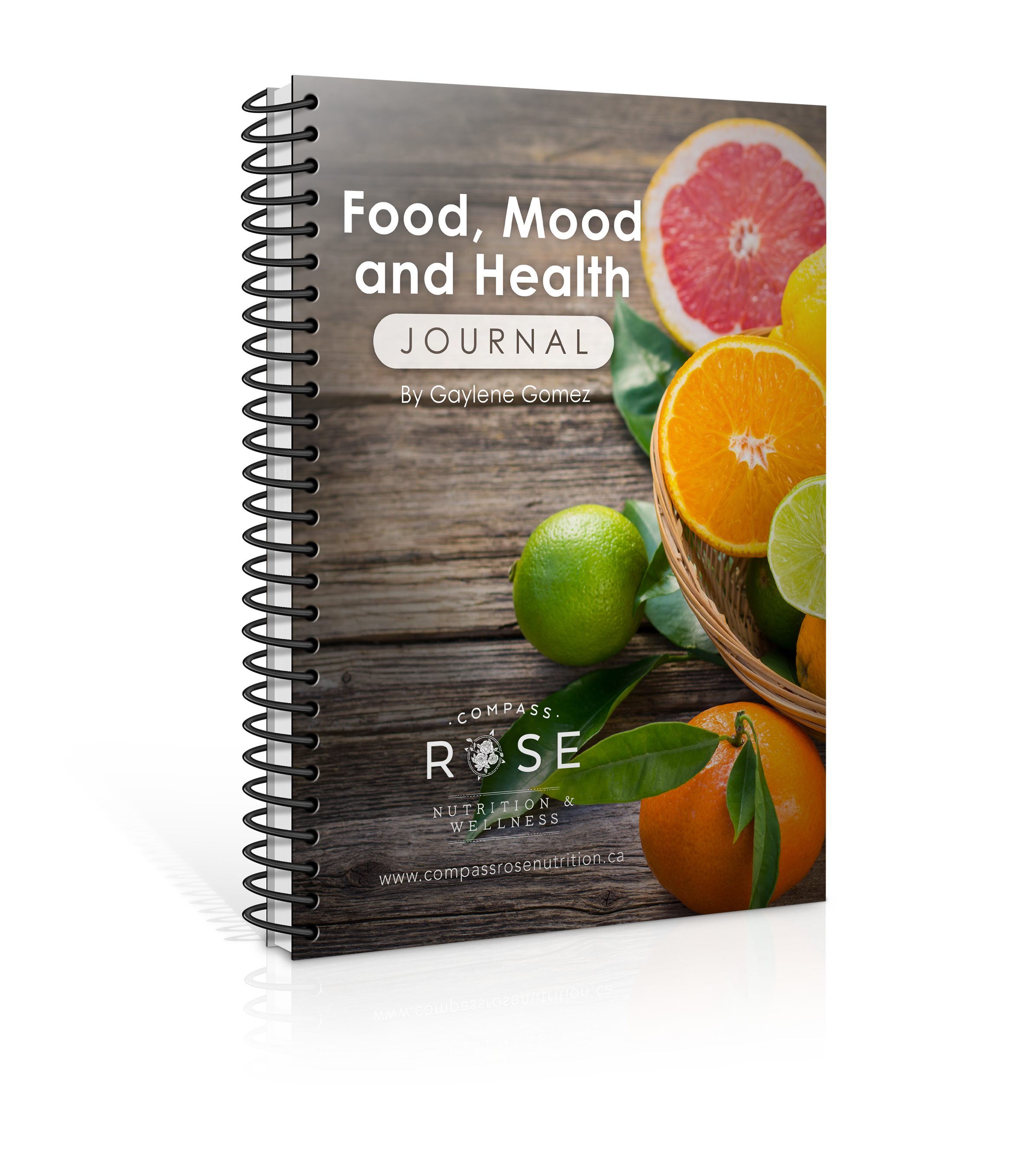Do you keep track of what you’re eating and drinking?
If the answer is “hardly ever” or “never”, you might want to change that! It’s much easier than you think to underestimate how much you’re actually eating and to think that you’re eating healthier than you really are.
When you start keeping track and logging your food and drink consumption (among other things like sleep and stress), you might be surprised at what you find and be able to spot patterns linked to your wellbeing.
Food journaling also keeps you accountable to yourself for meeting your health goals. Knowing that you’re going to have to admit to yourself exactly what you ate can be a game changer when it comes to your eating habits!
How A Food Journal Helps Health and Wellbeing
Writing down everything you eat can help you to see why you eat in certain ways and it’s great for spotting signs of emotional eating, for example.
Keeping a food journal helps you to see if you really are eating a truly balanced diet or not. You might think you’re getting a nice variety of fruit and vegetables into your daily diet but a food journal will tell you whether this is definitely true. And if there is some room for improvement with your diet, you’ll soon be able to see it more clearly than ever before. Even a minor deficiency can become a lot more obvious when you can see at a glance what you've eaten that day.
You can also see if certain foods are giving you unpleasant after effects. For example, it may become obvious that you almost always get gas or bloating if you eat a particular food but you don’t notice this with other foods. This might be a sign that your body can’t tolerate it very well so you can decide whether to cut it out of your diet.
Before you start keeping a food journal, you probably knew you were getting these symptoms but didn’t connect it specifically to anything you were eating.
How A Food Journal Helps Weight Loss
According to experts, you’re more likely to be successful with weight loss if you keep track of what you’re eating in a food journal.
Studies have suggested that keeping a food journal makes people more successful in losing weight and making sure it stays off. In one study, people who kept a food diary for 6 days per week lost twice as much weight as those who only did it for one day per week or didn’t log their food at all.
If you keep a food journal, you might notice that you’re snacking more than you’re aware of and if you also track what you’re doing at the time, you’ll probably find that a lot of it is mindless snacking and not linked to genuine hunger. For example, if you’re regularly eating while you’re watching television, it’s unlikely that you’re really appreciating what you’re eating. This can mean that you’ve eaten a lot more than you intended without even noticing.
It can also help you to spot patterns with WHEN you eat. For example, maybe you don’t eat much during the day and then suddenly go a bit crazy in the evenings with the wrong kind of foods. Being aware of this can help you to space out your eating and keep your appetite under control.
How A Food Journal Helps Your Mood
Keeping a “food and mood journal” goes a step further than the average food journal and also helps you to link together your food and mood.
If you can spot patterns between what you ate and how you were feeling at the time, it can make you a lot more aware of how your emotions are affecting your eating habits. Once you know this, you can take steps to start breaking the cycle.
It’s also important to log how you felt after eating. If you’re engaging in emotional eating, you may well find that you don’t feel any better afterwards and you may even feel guilty or ashamed that you indulged.
Keeping a Food, Mood and Health Journal
So, now you know how important a food journal can be but how do you go about keeping one? Ideally, you’ll want to fill it in every time you have something to eat or drink. You might think you’ll remember everything if you do it later on but this is rarely the case!
Some of the questions you might want to ask yourself in your food journal include:
What have I eaten or drunk and how much of this was consumed?
What time was this?
Where was I when I ate or drank this and what was I doing?
Was I alone?
How hungry was I?
What emotions was I feeling? Did anything happen to make me feel this way?
How did I feel afterwards?
You can use apps to help you track your food and these can be really useful when you’re out and about and need to log what you’ve eaten. Doing things the old fashioned way can make you more accountable to yourself though - there’s something about having to physically write it down that can make it seem more real.
Logging everything is only part of the story though. Don’t forget to set some time aside to review what you record and spot any patterns it might tell you. This will help you to make changes that improve your health and wellbeing.
One thing to note- you don't need to do it forever! If this seems overwhelming, I suggest start with 1 week. 1 week is pretty eye opening if you do it honestly and then you can decide if its worth it to you.
If you want to lose weight, have more energy, and really have a better picture of what is going on with your health, then I have a gift for you!
Grab my FREE Food, Mood and Health Journal now!



